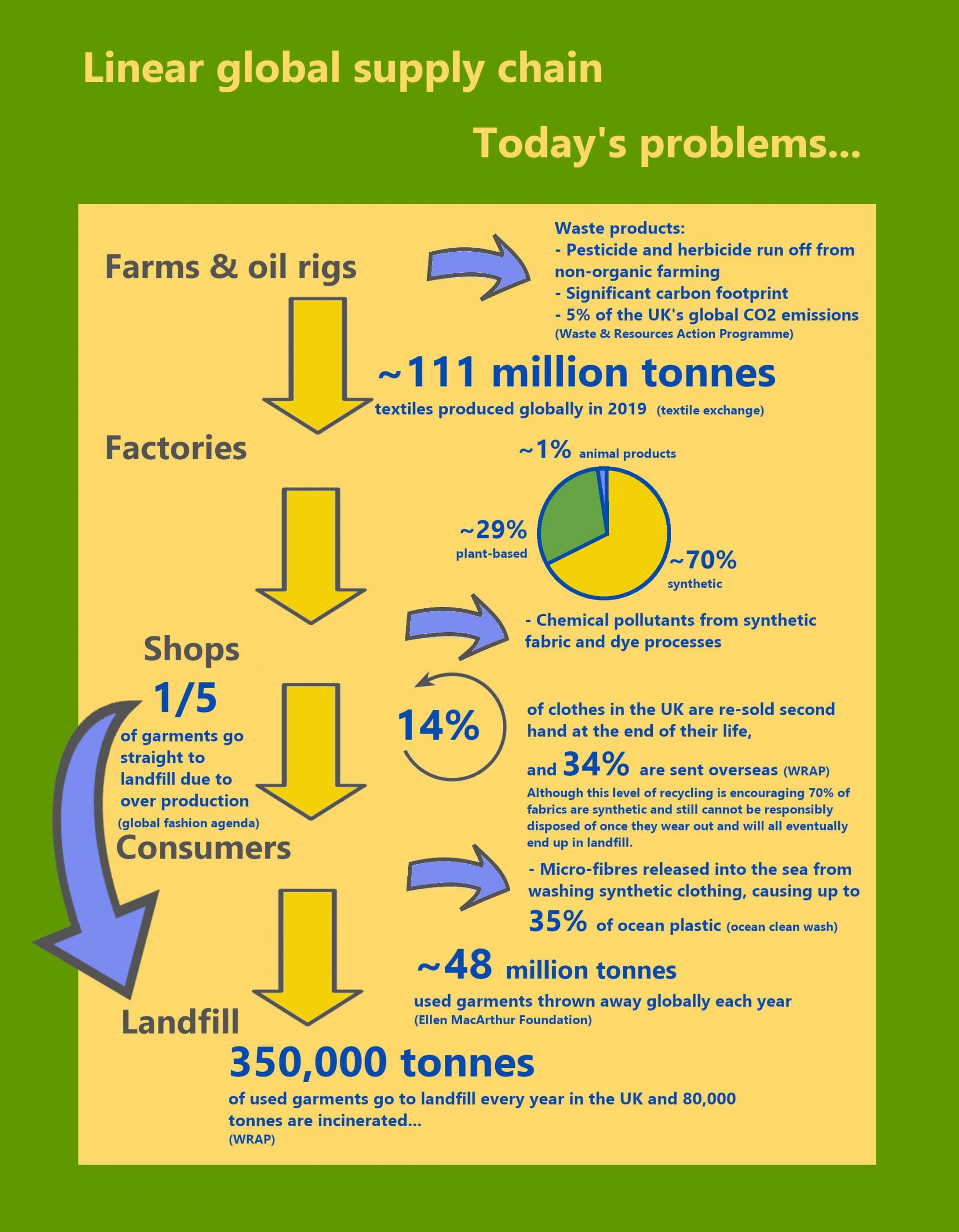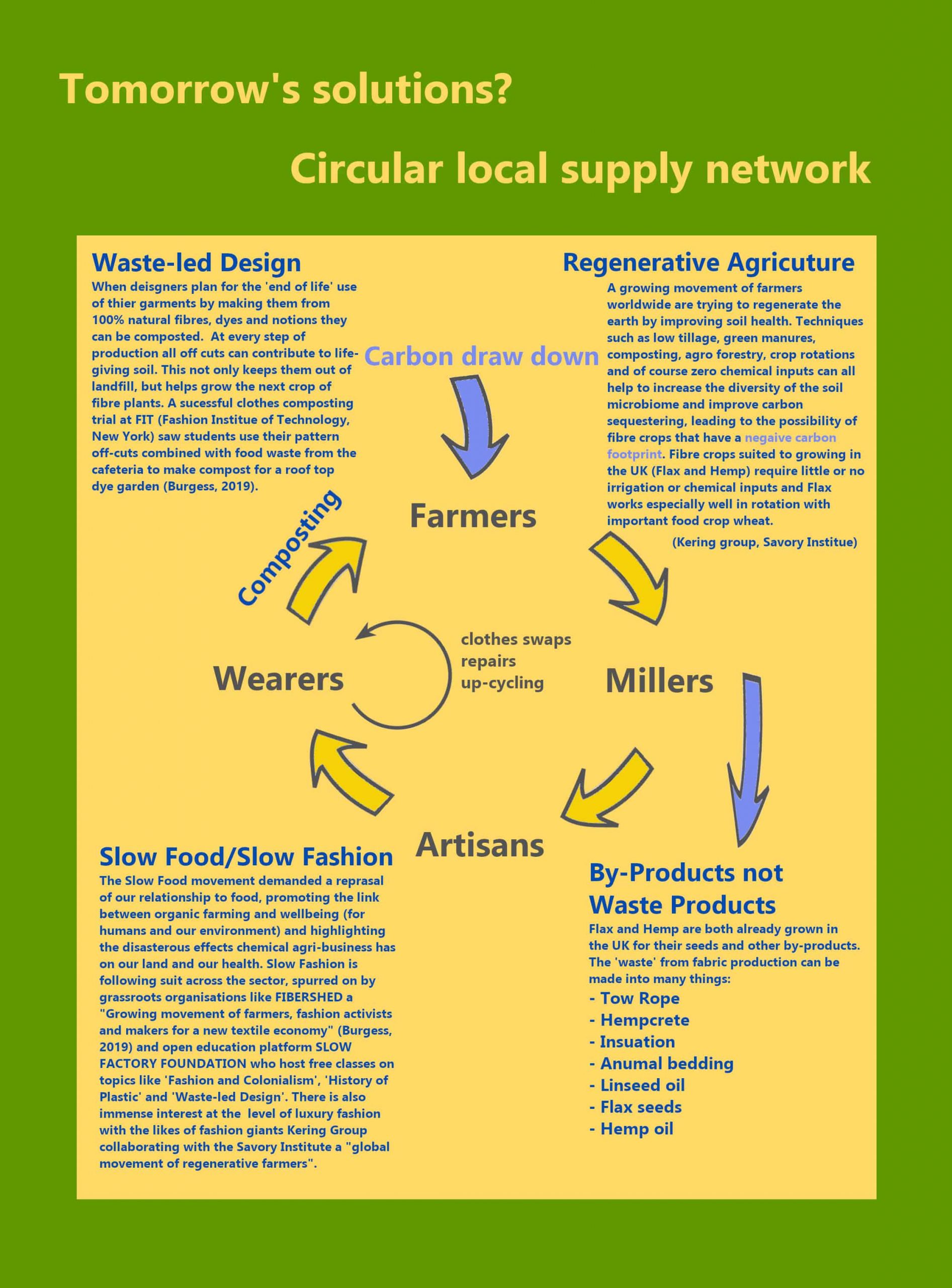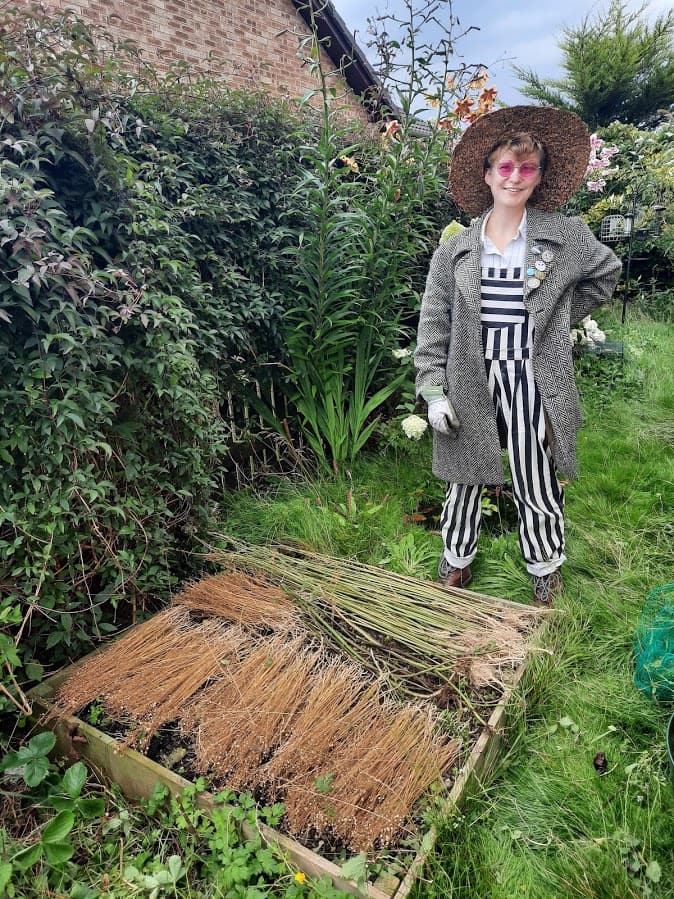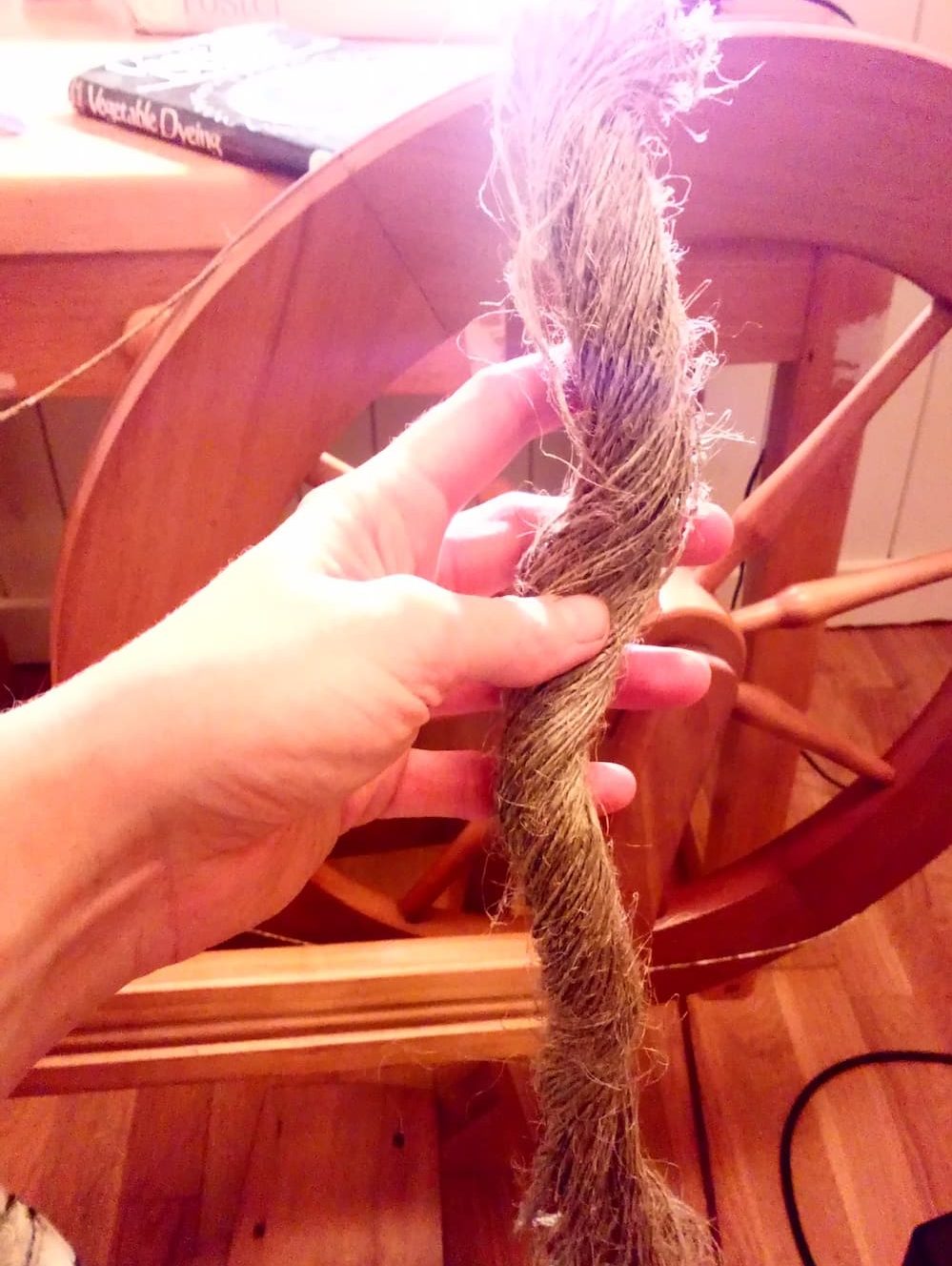After being inspired by The Land Magazine ‘s “What shall we wear” issue which investigates the UK’s homegrown textile revival, Rosie Bristow decided to try and grow, process, spin, weave and sew her own clothes. What started out as a quest for ethical dungarees has quickly become a much bigger investigation into how the fashion supply chain could be restructured to best benefit the earth and local farmers and artisans. In this blog she delves deeper into her journey into fibre.
I am currently studying an Msc in Fashion and Textile Management whilst building a soil-to-soil fabric supply network from the ground up, starting with a hectare of flax grown by George Young at Fobbing Farm. I am very excited for the chance to share some of my research so far with the Landworkers’ Alliance and hope many of you might be inspired in turn to get involved in the project!
The call for regenerative fashion
In response to the ecological and humanitarian disasters caused throughout the global fashion supply chain there is an increasing demand for a more transparent and accountable system. Fashion Revolution call for a fashion industry that “conserves and restores the environment and values people over growth and profit”, similarly the Fibershed movement seeks to “develop regional fibre systems that build soil & protect the health of our biosphere”. In the UK this year there has been several new fields of fibre flax planted by initiatives trying to create a fully traceable supply network connecting regenerative agriculture to sustainable fashion. For example Homegrown Homespun in Blackburn are running a very exciting project to produce the UK’s first homegrown jeans. A major obstacle to realising these projects however is the lack of bast fibre processing equipment. Whilst large scale scutching and spinning mills exist in mainland Europe and China it would be contrary to the founding principles of these new initiatives to incur a big carbon footprint or take advantage of cheap labor overseas. Local and affordable bast fibre processing equipment is key to achieving a regenerative soil-to-soil textile economy.
Linear global supply chain Vs Local circular supply network


How to spin straw into gold
Transforming bast fibres such as flax, hemp and nettles from raw plants into a fine yarn is a multi-stage process that can involve many pieces of farm equipment and factory machinery. I learnt all about it at a great hands-on workshop at Flaxland last summer, and it is magical seeing the very straw like stalks transform into shiny silver hair, and then spun on a wheel into thread. The following table is a quick overview of the full process noting what technology (if any!) is currently available in the UK. The third column notes plans we have made for this year.
| Stage of fibre processing | Technology available in the UK? | Proposal for next steps |
| Pulling
At harvest time the bast plants are pulled rather than mown to preserve the full length of the fibre in the stalk. |
None! | Hand pulling by a big community effort. (see below for volunteering details!)
|
| Rippling
The seed heads are removed from the stalk, this can happen before or after retting, although seeds remove before are better quality. |
Hand tools | We will hand ripple using a wide tooth comb, although I would hope to build equipment for this in the future. |
| Retting
The stalks are left to ‘ret’ (from ‘rot’) either in the filed or submerged in water. Bacteria helps break down the pectins which bind the fibres to the plant. |
The retting itself doesn’t need equipment, just space in a field. Adapted farm equipment for baling | We are going to try using a regular hay baler, taking care that all the stalks stay the same way around. We might also trial using a forklift to turn the retting flax. |
| Breaking
Once retted and dried out the stalks are broken so the hard core crumbles away. |
Hand tools or basic roller breaker | We are currently building a roller breaker based on the open-source plans available from Fibershed. |
| Scutching
The scraping away of the remaining woody core and outer skin leaving long hair like fibres. |
Hand tools or salvaged machinery | Mallon Linen in Ireland has recently renovated an old scutching turbine, however there are only wooden scutching knives available elsewhere in the UK. |
| Heckling
(Or hackling) is the combing out of the fibre with increasingly fine combs. Tangled shorter fibres, or ‘tow’, can be made into rope of coarser yarn. |
Hand tools or rotor heckler W.I.P. | Simon at Flaxland is currently building an electric ‘Rotor Heckler’ which can both scutch and heckle flax. I aim to learn from him how to build my own prototype this summer. |
| Spinning
Heckled fibre is then dressed on a distaff and spun on a wheel or drafted into a long thin ‘sliver’ and spun by machine. |
Spinning wheels or drop spindles | Studio HILO in Berlin have designed a modular open-source spinning machine which we hope to adapt to spin bast fibres if we get enough funding! |
Getting Involved
If you are interested in learning more or getting involved in this farm-to-fabric project, there are several opportunities coming up this year and I’d love to hear from you!
- Harvest volunteers! Around the middle of July we need hands for pulling flax at Fobbing Farm in Essex. Expect a day of hard work and fun flax processing demonstrations. Lunch provided, and you are more than welcome to take home some flax if you wish to try your hand at flax processing. Date tbc nearer the time.
- Call out for spinners, weavers, knitters, dyers, or clothing & home furnishing makers. Whether you’re a keen member of the local knitting circle, or an entrepreneur starting an ethical work-wear brand we’d love you to test drive our flax and linen products. In 2022 we hope to host an exhibition or fashion show displaying the many different products created from the 2021 harvest.
Email Rosie at rab2001@hw.ac.uk or find me on Instagram @straw_into_gold



